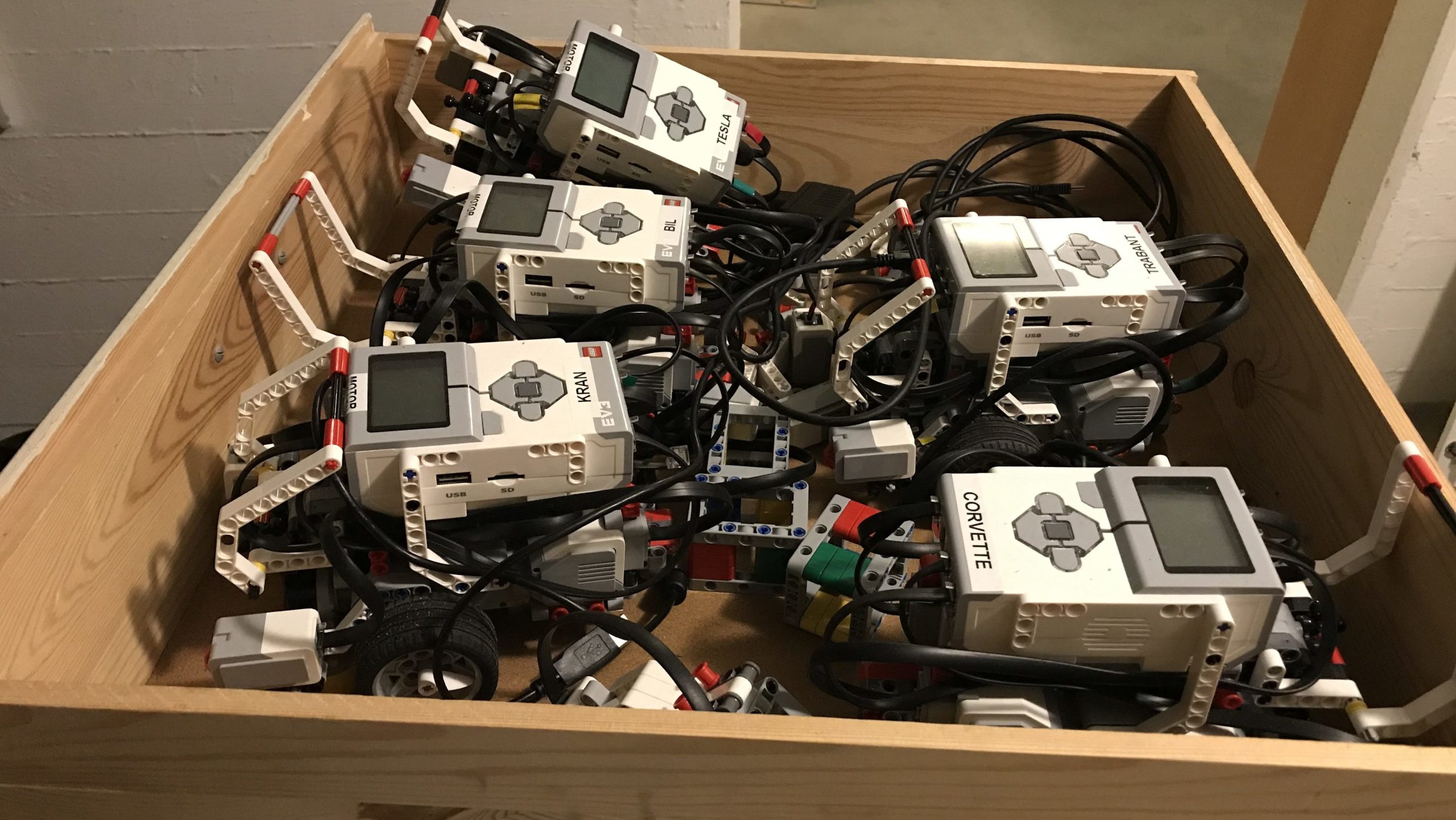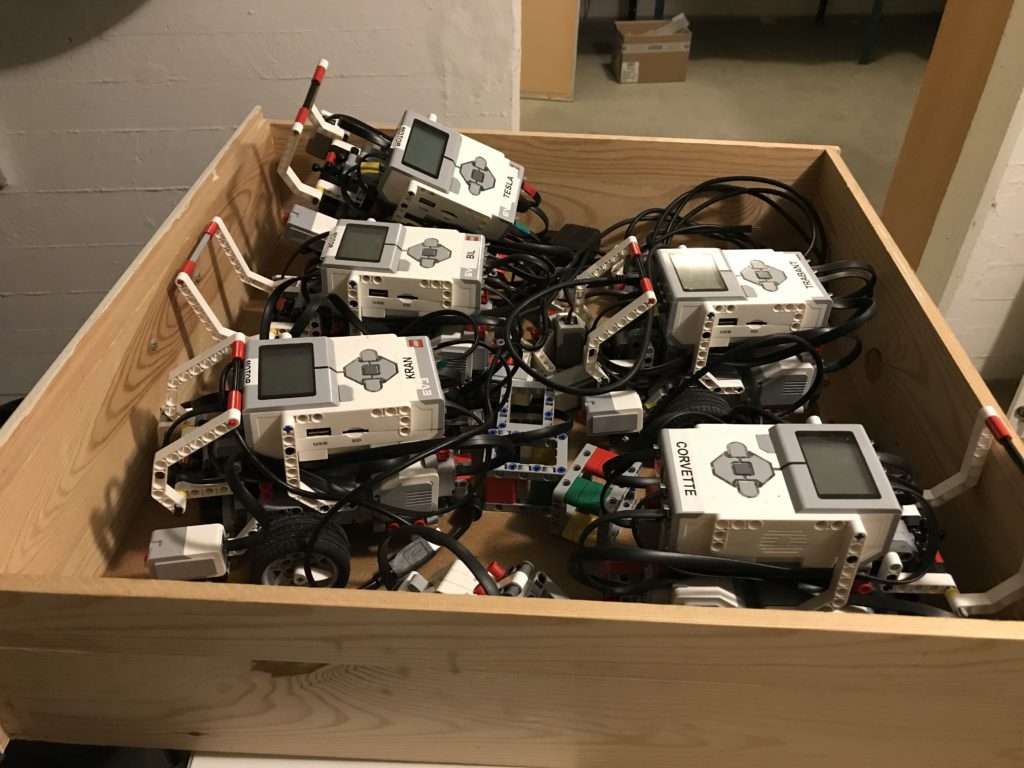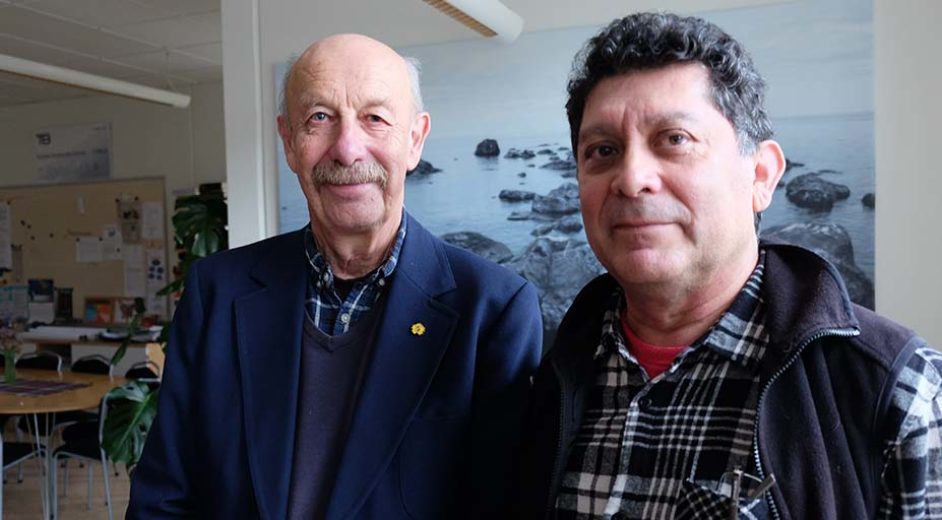Teachers Need to Improve Their Understanding of the Digital Industry
How can students imagine a potential career within the digital industry if their teachers and student counsellors do not see the same potential? A Nordplus-project highlights the advantages of more and better IT-education, new forms of further education and company visits.
By Joan Rask
”There’s a generation gap. A lot of children grow up with mobile phones, video games, and old-school parents who believe digitalisation to be something diffuse. But it isn’t,” says Hugo Lopez, IT-teacher at Jarnakra-skolen in Lund. He’s originally an automation engineer by training, but in this job, children preoccupy the majority of his day-to-day life.
”It’s fantastic – I get paid to play with children!”
His big smile turns into laughter. He quickly composes himself and continues:
”My entire world is the students, and my role is to take care of them and provide them insight into artificial intelligence. I teach them how they can give Lego-figures ears and eyes and make them move,” says Hugo Lopez.
He has no problem motivating the children with IT as their elective class.
”They really want to learn, and feeling their excitement is wonderful. I try to give them a mind-set in a way so they understand technology and are able to identify a file and know how to proceed when faced with a problem,” says Hugo Lopez, who is one of the school’s two representatives in the Nordplus-project “From Lego play to future choice”.

The other representative is Clas Koverberg, who is the international coordinator at Jarnakra-skolen and co-initiator of the project as well. He knows that IT-skills are crucial to many jobs, but as an experienced teacher and administrator in Sweden and abroad, he is also aware that it is near impossible to teach and guide someone on something you do not yourself understand. That is one of the reasons behind Jarnakra-skolen being a partner in the Nordplus-project focusing on children and young people’s IT-skills while offering further education within the digital industry to IT-teachers and student counsellors. The project has been running for about 1,5 year and will finalise in 2020.
”I must admit to being surprised with just how great young people’s IT-skills are. The children’s excitement is impressive, and there’s lots of power and energy in the room when they make Lego-things drive or do something they wanted to make them do,” says Clas Koverberg.
IT is still new at the Swedish public school where students who participate in the project are aged 10-16. At the school, there are only a few IT-teachers, but for Tiina Karvonen, head of Information Technology and International Business at Oulu Vocational College in Finland, IT-education is part of regular, everyday life. Here, the students are 16 years or older, and the student project participants study information technology and robotics.
We try to encourage more young people to study programming and robotics because those are important skills in their future work life. During this project our students will learn technologies used in other schools, for example new programming we haven’t taught them. That’s the most important to us,” Tiina Karvonen says.
Besides the cooperative work across nations, the project also works across student age groups, and the wide-varying age groups have, in themselves, taught the teachers something special. The two Swedish teachers in Lund report how motivating it is to experience what the younger children are taught can be used later on. That and the other positive experiences during the project are something Clas Koverberg wants to share with other people.
”When the project participants come to Lund again in 2020, another local gymnasium class will join the project. We hope they benefit from meeting their Latvian and Finnish peers, and 8-9 teachers from the gymnasium will also participate,” Clas Koverberg says.

Fra Nordplus-projektet: From Lego Play to Future Choice
Yet, the project is not only transverse for students, teachers and student counsellors – the project also goes across the education sector and the private sector.
Company visits on the programme
The first meeting was in 2018 in Lund. Here, Clas Koverberg had arranged a visit to the successful ESS Science Center. A tour which impressed, amongst others, Dace Langenfelde from Valka Jãnis Cimze Gymnasium in Latvia who is a coordinator at the institution.
”Our guide at ESS was the head of accelerator division Mats Lindroos who, among the Swedes, is estimated to be Nobel Prize-worthy. The company visits gave us a rare chance to meet people whom the Swedes look up to,” says Dace Langenfelde.
Company visits are central elements to increase the participants’ knowledge of career paths, the company’s needs, and to give children and adults a very concrete example of the multifaceted opportunities that the digital industry offers.
”During company visits, they learn about the requirements of the job market, and they experience how several highly qualified specialists share their experience. They tell about the company, how they use modern technologies and work out innovative solutions. These visits help the young people in choosing their future career,” says Dace Langenfelde.
To the Latvian gymnasium, the project aims to improve the opportunities within IT-education, improve the overall quality and ensure better career counselling in the digital industry. When the project finalises, the experiences are to be disseminated to all gymnasiums in Latvia.
”This project is a new life and work experience for all Latvian participants. It shows us another approach, considering the expected changes in the teaching content. My own experiences have also broadened, I have learned both about new cultures, the social life in Sweden and Finland and seen some of their landmarks,” she says.
Gaming – a part of teaching
Oulu Vocational College hosted the third visit in November 2019, and it was the first time in northern Finland for many of the visitors. Here, the participants visited a well-known video game company, and to Tina Karvonen, experiencing the visitors’ reaction was interesting.
”They really liked it because the company Fingersoft is very famous. They have got a lot of success and they sell a well-known game called ‘Hill Climb Racing’, and it’s very popular, over 1 Billion total installs. And they all knew it already,” tells Tiina Karvonen.
It was many of the Latvian students’ first time visiting a video game company and the whole programing-side of things was also new to them, as they do not learn video game programing. Dace Langenfelde and her Latvian colleagues received professional inspiration as a result of the visits, as brainstorming took place and experiences were shared, too. Some of that inspiration you gain in the unspoken when participants solve shared tasks, drive to the companies they visit, drill holes in the ice in the Bothnian Bay and attempt to ice fish, and try out VR-equipment in practice.
”I’m happy to see how easily Latvian and Finnish students find a common language, form positive relationship and share interests,” says Dace Langenfelde.
This also applies to the teachers. The social and cultural parts are important elements. Both the Swedish, Latvian and Finnish participants emphasise the positive development that has taken place with the teachers. It namely grows your confidence to work internationally and to become increasingly aware of your own strengths.
”I would encourage everyone to do big projects, even if you already know the area, you’ll learn new things because you get new and different ideas. You see how the partner schools work in this area or how they teach the same skills in a different way or with different tools – and you also get connections yourself, and the students get connections for the future... you never know where they’ll end up working,” says Tiina Karvonen.
More information
Facebook-side: From Lego Play to Future Choice
Read the article in a Nordic language
Lærere skal forstå den digitale branche bedre
Coordinating institution
- Valka Janis Cimze Gymnasium
Partner institutioner
- Oulu Vocational College
- Jarnakra School Lund
Program
- Nordplus Junior
